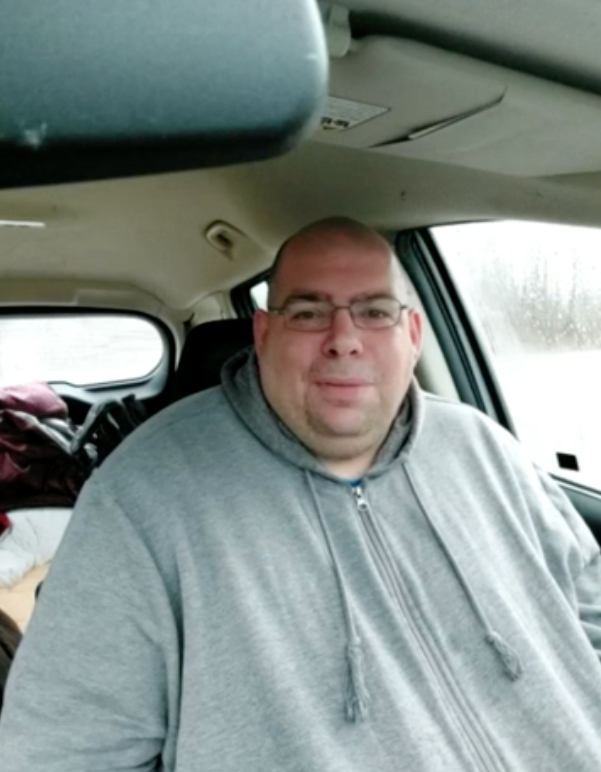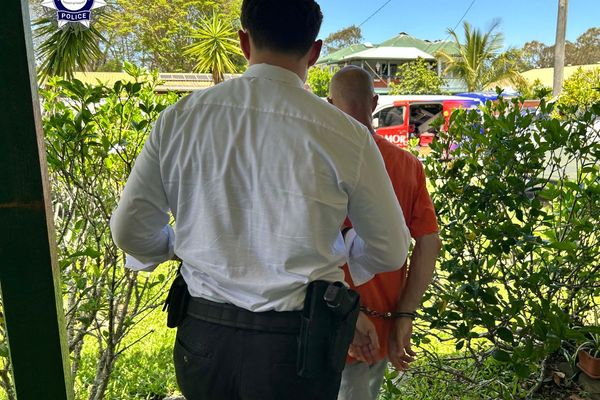
A man who occupied the streets of downtown Ottawa in Canada’s so-called “Freedom Convoy” now finds himself filled with regret after giving all his life savings to the anti-vaccine mandate protests that kicked up last January.
Martin Joseph Anglehart told CTV News Ottawa that, while he didn’t necessarily agree with the motives behind most protesters – he told the outlet he “never had a stance” on vaccine mandates or lockdown policies – he did find a sense of belonging among the truckers who ground the nation’s capital into a honking halt.
“I’m still as alone as I was two months ago," the 41-year-old told CTV from behind the wheel of his SUV, a place that’s become his home since he lost his $13,000 (£7,916) in savings from the protest and was kicked out by his landlord over his “point of view” concerning the demonstration.
“I still don’t have friends and I still don’t have family. I’m living in the back of a fricken car, so yah, I regret going.”
In January, Mr Anglehart joined up with the long-haul truckers from his home in Medicine Hat, Alberta and drove 3,000km to descend on Ottawa in a convoy that would lead to a weeks-long standoff between thousands of protesters and an increasingly disgruntled residential populace who would find themselves living amidst a “siege” of vandalism, anti-social behaviour and disturbances.

Though he initially didn’t find himself motivated by the same causes driving the thousands of other protesters, such as anti-vaccine mandates, Covid restrictions and later, a general anti-Trudeau sentiment, Mr Anglehart told CTV he was quick to help out with efforts on the ground once he made it to the capital.
In receipts and text messages shown to the news outlet, Mr Anglehart showed how he began transferring thousands of dollars to occupiers, covering off the costs of essentials like food and fuel.
“They said ‘Keep your receipt and we will put it with the sheets’ and I said ‘Ok,’” the man told CTV.
While he was hopeful that he’d be reimbursed for his purchases, that day still hasn’t come.
On 15 February, the Alberta man was arrested after he had gone on an errand to deliver fuel to the truckers occupying the city streets. This act, as of that day, would be considered an illegal offence under the newly enacted Emergency Act invoked by the prime minister that morning.
In that emergency order, no longer in place, the government allowed for authorities to freeze the bank accounts of truckers, both personal and corporate, and to declare certain parts of Ottawa a no-go zone.
For Mr Anglehart, he’s still coping with the fallout from that emergency order.
“I was given a piece of paper that said I had to be outside the radius of Ottawa and I left, the day before my account got frozen,” he told CTV. He now resides in Kenora, Ont. and told the station that, as of last week, his accounts remain frozen.
While he’s working to rebuild his life to what it once was, he told the station that he feels deep “regret for going”.
“I’m sorry to the people of Ottawa,” he said. "You had to endure all the horns and all the weirdos.”
The so-called “Freedom Convoy”, which led to many of the city’s main arteries being blocked by trucks, a class-action being brought forward by inhabitants who suffered from the near-hourly horns blaring, and the Ottawa mayor being forced to declare a state of emergency for weeks, came to an end last month when Ottawa Police began cracking down on protestors and truckers camped outside Parliament Hill, leading to at least 100 arrests.







